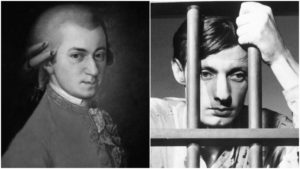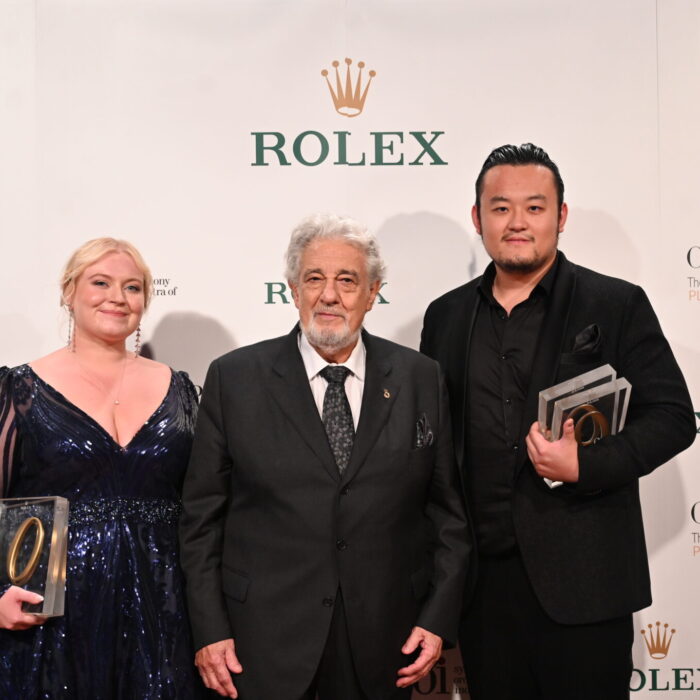
Opera Meets Film: How Robert Bresson Expresses Themes & Inner Life Through Mozart’s Music in ‘A Man Escaped’
By David Salazar“Opera Meets Film” is a feature dedicated to exploring the way that opera has been employed in cinema. We will select a section or a film in its entirety, highlighting the impact that utilizing the operatic form or sections from an opera can alter our perception of a film that we are viewing. This week’s installment features Robert Bresson’s masterpiece “A Man Escaped.”
As the opening credits roll during Bresson’s masterpiece “A Man Escaped,” the opening lines of Mozart’s “Kyrie” from Mozart’s Mass in C Minor ring out.
In this opening, Bresson tells the audience a great deal about the story of the film. By placing the choral passage before a single image of the film’s story has been presented, he is already making a statement for spiritual grace. This is a movie about prisoners at the hand of ruthless Nazis, their lives always hanging in the balance. Surely, existential dread and a desire for God’s mercy is undeniably on their minds.
Bresson returns to the piece throughout the film at several intervals, many of them when the main hero Fontaine exits from his cell to interact with the outside environment.
Film scholar Kristin Thompson suggests that the music’s repeated inclusion speaks to thematic conflicts pertaining to religion and spirituality at the core of the film. “Fontaine tells another prisoner that he prays but doesn’t expect God to help him if he doesn’t work for his own liberty,” Thompson writes in an essay on the use of sound throughout “A Man Escaped.”
Thompson then notes that the piece’s recurrences coincide with Fontaine meeting other men in the prison and how they help in planning his escape. When his contact is cut off in later scenes because one of the prisoners opts to not join him in the escape, the music disappears. Eventually, it returns with the arrival of Jost, a young boy who will eventually join Fontaine in his plan. When the two men finally escape, the music provides an emotional bookend to its inclusion during the opening credits.
Thompson concludes her analysis of the music in the film with an interesting observation. Thompson argues for “general implicit meaning beyond what Fontaine tells us explicitly. If we follow the pattern of the music’s recurrences, we might interpret the motif as suggesting the importance of trust and interdependence among the people of the prison.”
But perhaps, the implicit meaning beyond what we are told is of a different nature.
Bresson is the master of minimalism, his style relying heavily on audience interaction to piece together the narrative through the differing narrative tools he puts in place. As such, his films often feature acting performances devoid of emotion “on the surface.” Bresson often called actors “models” and his tactics on set often pushed toward getting the least emotional performances from his actors. As such, actors’ performances themselves often don’t reveal the inner workings of the characters. Bresson wants his audience to intuit that inner life through the external workings of their actions and juxtaposition of imagery and sound.
In this film, Bresson provides us with a bit more into the feelings and thoughts of Fontaine via voiceover. And one could argue, that the music here is another such example of allowing the audience to access the character’s emotions. The repeated interjection of the “Kyrie” suggests not only the repetitive structure of life in the prison, but his constant anxiety over his plan to escape and the need for some mercy from a higher power as he confronts different obstacles.
Bresson is very specific with what he includes and doesn’t in his film, and the choice of a Mass’ “Kyrie Eleison” movement, a piece of music begging God for mercy, cannot be overlooked. Especially in the context of a film in which a man is seeking to escape from a living hell.
As such, Bresson is perhaps offering up audiences a complex dialogue within a character’s mind – one between his rational thoughts and his feelings. One in which he outwardly expresses composure and another where his soul, in the guise of music, cries out in despair for some mercy.
Categories
News

